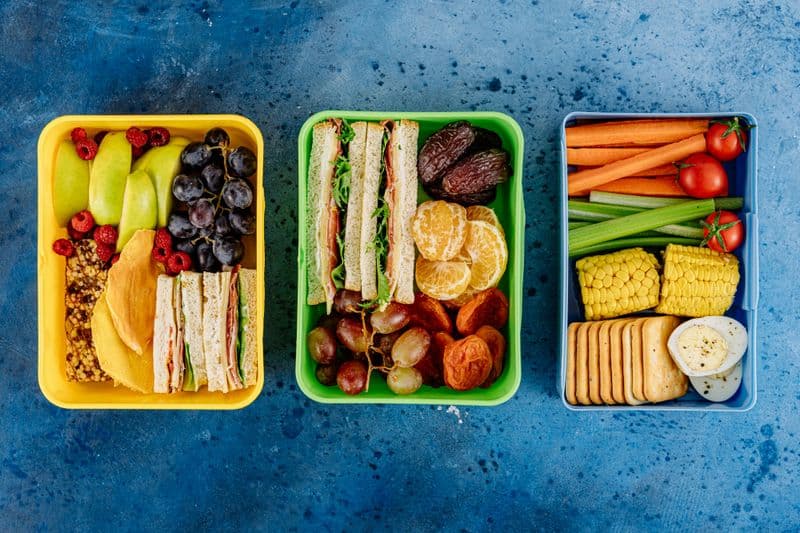Shopping for groceries can be both a mindful practice and a budget-friendly endeavor.
Embracing conscious shopping habits can lead to healthier living and more savings. Here are 12 principles to guide you.
1. Plan Ahead

Creating a meal plan before hitting the store helps avoid impulse buys. Checking your pantry and fridge first ensures you only purchase necessary items.
Listing ingredients needed per meal streamlines shopping. Organize the list by store sections to save time and reduce stress.
A well-thought-out plan can prevent overspending and food waste, leading to a more efficient shopping experience.
This method also encourages healthier meal choices, aligning with your household’s dietary goals.
2. Buy in Bulk

Purchasing non-perishable items like rice, pasta, and canned goods in bulk can save money and trips to the store.
Bulk buying is often cheaper per unit, reducing overall costs. It also minimizes packaging waste, supporting eco-friendly habits.
Be mindful of storage space at home and only buy what you can store properly.
This principle supports long-term savings and environmental consciousness, making it a wise choice for the frugal household.
3. Embrace Seasonal Produce

Seasonal produce is not only fresher but often cheaper due to abundance. Visiting local farmers’ markets can offer better prices and support local agriculture.
Incorporating seasonal fruits and vegetables into meals diversifies your diet. It introduces new flavors and nutrients that align with the seasons.
This practice encourages creativity in cooking and ensures a nutrient-rich diet. Embracing seasonality leads to both health benefits and cost savings.
4. Use Coupons Wisely

Coupons are a great way to save money, but they should be used strategically. Focus on items you regularly buy or want to try.
Avoid purchasing things just because they are discounted. Digital coupons and apps are convenient alternatives to paper. They help in tracking deals and discounts efficiently.
Combining coupons with store sales maximizes savings. This mindful approach ensures you’re getting the best deals without compromising on quality.
5. Prioritize Store Brands

Store brands often offer the same quality as name brands but at a lower price. Testing these options can lead to significant savings over time.
They are usually positioned next to popular brands, making it easy to compare. Trying out store brands for basics like cereals, canned goods, and cleaning supplies can be beneficial.
This principle empowers consumers to make cost-effective choices without sacrificing quality, aligning with budget-conscious shopping habits.
6. Stick to the List

A shopping list is your best defense against impulse buying. Sticking to it ensures you only purchase what you need, reducing unnecessary expenses.
It also saves time by keeping you focused on your goal. If you stray from the list, assess if the item is truly needed.
This disciplined approach to shopping helps maintain a budget while ensuring all household needs are met. It’s a simple yet effective strategy for frugal living.
7. Avoid Shopping Hungry

Shopping on an empty stomach can lead to impulse buys, often unhealthy choices. Eating a meal or snack before going to the store helps make rational decisions.
It curbs the urge to buy unnecessary snacks and treats. This simple practice keeps your health and budget intact.
Being mindful of your hunger levels before shopping ensures you stick to your list.
It promotes healthier choices and prevents overspending, aligning with conscious shopping practices.
8. Compare Unit Prices

Understanding unit prices helps identify the best deals. It reveals the cost per ounce or gram, useful for comparing different package sizes or brands.
Larger packages might seem cost-effective, but unit prices tell the real story. This practice encourages mindful spending and ensures you get the most value for your money.
By focusing on unit prices, you make informed choices, supporting a budget-friendly and conscious shopping habit.
9. Reconsider Convenience Foods

Convenience foods are tempting but often come with a higher price. Preparing meals from scratch can be more economical and healthier.
Planning meals around fresh ingredients reduces reliance on processed options. This principle encourages culinary creativity and healthier eating habits.
It aligns with a conscious approach to grocery shopping, focusing on nutritional value over ease.
Preparing meals at home can be a rewarding experience, both financially and personally.
10. Invest in Quality Staples

Investing in high-quality staples ensures longevity and enhances meal flavors. Items like olive oil, spices, and grains are foundational to a variety of dishes.
They may cost more initially but offer long-term value. Proper storage keeps them fresh and ready for use. This principle balances quality with cost, ensuring nutritious and delicious meals.
It supports a sustainable approach to shopping, focusing on essentials that form the core of many recipes.
11. Practice Mindful Spending

Mindful spending involves being aware of your budget and shopping habits. Consider what you truly need versus want.
This awareness reduces impulse purchases and aligns with financial goals. Reflecting on your shopping habits can lead to more intentional choices.
This principle supports a balanced approach to grocery shopping, ensuring your actions reflect your household’s values and needs.
It encourages responsible consumer behavior and promotes financial well-being.
12. Grow Your Own Herbs

Growing herbs at home provides fresh ingredients and reduces grocery bills. Herbs like basil, mint, and parsley are easy to cultivate and maintain.
They add flavor and nutrition to meals without the cost of store-bought options. This practice connects you with your food source and enhances culinary skills.
It promotes sustainability and self-sufficiency in the kitchen. Growing your own herbs is a rewarding hobby that supports a conscious and cost-effective household.

